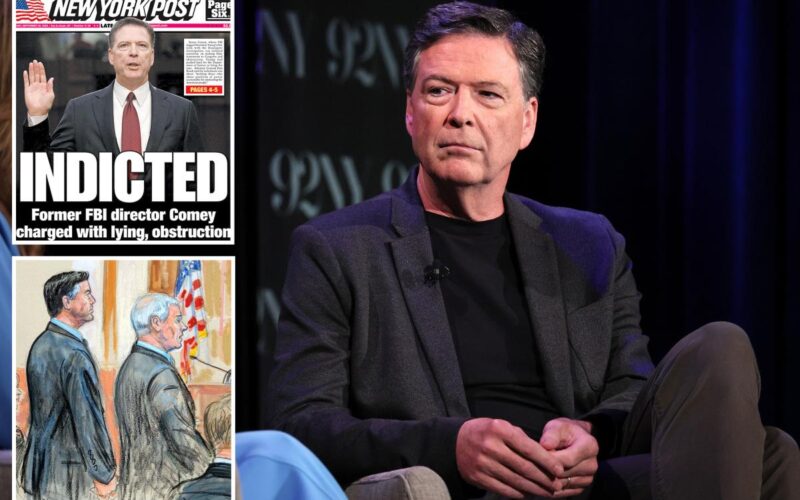The case against former FBI Director James Comey is a genuine bid to hold a public official accountable for wrongdoing — and not an extension of President Trump’s grudges, federal prosecutors argued Monday.
Attorneys for Comey, 64, had moved Oct. 20 to dismiss charges of lying to Congress and obstruction of justice, arguing Trump had targeted the former FBi boss for refusing to quash the long-running “Russiagate” investigation that overshadowed much of the 45th presidency.
But the Justice Department insisted in a 48-page filing in Alexandria, Va., federal court that “[t]he societal interests in this prosecution are readily apparent and overwhelming.
“The defendant is a former FBI Director who lied to Congress about his conduct while at the helm of the Nation’s primary federal law-enforcement agency,” read the brief submitted by prosecutor N. Tyler Lemons on behalf of interim US Attorney Lindsey Halligan. “His prosecution implicates societal interests of the highest order.
“Nonetheless,” Lemons said of Comey, “he asks the Court to take the extraordinary step of dismissing his indictment because — he says — he is being vindictively and selectively prosecuted.”
The DOJ claims Comey falsely told lawmakers on the Senate Judiciary Committee in September 2020 that he didn’t order leaks to the media about FBI investigations.
Comey argued in his motion to dismiss that when career prosecutors in the Eastern District of Virginia refused to open a case against him, Trump ousted the US attorney in favor of Halligan, a former personal attorney for the president who had no prosecutorial experience.
The former bureau boss also cited Trump’s Sept. 20 Truth Social post directing Attorney General Pam Bondi to go after his “guilty as hell” political enemies — including Comey — as evidence of targeting.
The DOJ responded that Comey’s claim of vindictive prosecution did not meet the “heavy burden” of proof.
“His evidence—a mix of news reports, socialmedia posts, and speculation—is hardly evidence at all. It certainly isn’t ‘direct evidence’ of a vindictive motive,” Lemons said. “And it fails to show that the prosecution was brought ‘solely’ to punish him for exercising a protected right.”
Prosecutors added that Trump “does not harbor vindictive animus against the defendant in the relevant sense.
“The defendant primarily cites the President’s social-media posts,” the filing read. “These posts reflect the President’s view that the defendant has committed crimes that should be met with prosecution. They may even suggest that the President disfavors the defendant. But they are not direct evidence of a vindictive motive … None of the President’s social-media posts express a desire for the defendant to be penalized for exercising his First Amendment rights. Far from it.
“The President’s social-media posts are clear on why he thinks the defendant should be prosecuted,” Lemons concluded, “he thinks the defendant is ‘guilty as hell.’ That is not an expression of vindictiveness.
Comey has pleaded not guilty and is slated to go on trial on Jan. 5, 2026. His legal team did not immediately return a request for comment.
This is a breaking story. Please check back for updates.








